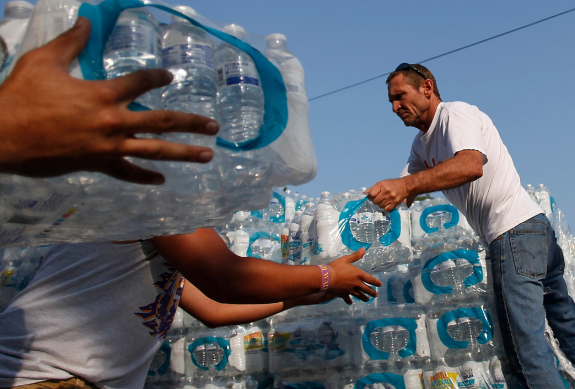In an effort to be extra cautious, Ohio Governor Michael DeWine recommended locals living close to the site of the hazardous train disaster on February 3 on the outskirts of East Palestine to use bottled water.
“Out of an abundance of caution, we have told people, ‘Yes, use a bottle of water. Don’t take a chance.”
The water from the village’s first well had been tested, and the results, according to the Republican governor, revealed that it was safe to drink.
On Wednesday, more findings were anticipated, and authorities kept an eye on the water quality in other streams.
He stated that hundreds of fish that were discovered dead had recently been slaughtered.
BREAKING: Greater Cincinnati Water Works is closing Cincinnati's water intake in the Ohio River ahead of anticipated contaminated water from the East Palestine train derailment, the agency announced Friday morning. https://t.co/dQKJkMVfRT
— WCPO 9 (@WCPO) February 17, 2023
“Look, what I said yesterday: I would be back there if I was living in the community. Look, we’re doing testing with the air. The air has been safe; it continues to be safe. The drinking water that comes into the system we think is deep wells. We think it’s safe, but we told people that, out of an abundance of caution [and] until we get the tests back, you should drink bottled water.So, look, all we can do is give people the facts and give them the tests,” he added, noting that health officials and the Environmental Protection Agency were working with them,” DeWine said.
DeWine’s press secretary, Dan Tierney, stated on Tuesday afternoon that authorities believe the geology of the area creates a large barrier between drinking water wells and the scene of the event.
10 of the Norfolk Southern rail cars carrying hazardous commodities had derailed on February 3, according to a study released on Tuesday by the National Transportation Safety Board. According to the EPA, these pollutants included ethylene glycol monobutyl ethers, butyl acrylate, butyl acrylate, and ethylhexyl acrylate.
Residents were permitted to go back to their homes last week after the chemicals, which included the carcinogen vinyl chloride, were released under regulated conditions.
Michael Regan, the administrator of the EPA, announced on Wednesday that he would visit East Palestine on Thursday to speak with locals, see where the incident occurred, and meet with emergency personnel.








